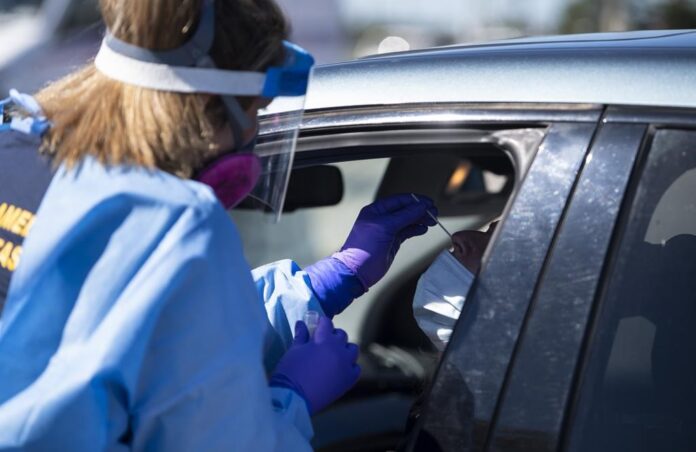The head of the World Health Organization on Tuesday urged countries to maintain surveillance of coronavirus infections, saying the world was “blind” to how the virus is spreading because of falling testing rates.
“As many countries reduce testing, WHO is receiving less and less information about transmission and sequencing,” Director-General Tedros Adhanom Ghebreyesus told a news conference at the U.N. agency’s headquarters in Geneva.
“This makes us increasingly blind to patterns of transmission and evolution.”
Bill Rodriguez, chief executive of FIND, a global aid group working with WHO on expanding access to testing, said “testing rates have plummeted by 70 to 90 per cent.”
“We have an unprecedented ability to know what is happening.
And yet today, because testing has been the first casualty of a global decision to let down our guard, we are becoming blind to what is happening with this virus,” he said.
COVID-19: China’s Beijing begins mass testing as lockdown fears grow
Experts say Canada needs to develop a robust system to detect COVID-19 activity in the absence of wide-scale PCR testing, which has ultimately led to inaccurate official case counts.
Trending Stories
Canada eased its travel rules again. What to know, and how to guard against COVID
Unvaccinated people increase risk of COVID-19 infection among vaccinated: study
Since the Omicron variant took hold over the winter, provinces and territories have scaled back access to gold-standard PCR testing, citing the lack of capacity to keep up with demand and the need to free up health-care resources.
Many people have since relied on results from rapid antigen tests, but they aren’t as reliable at detecting the Omicron variant or reported and tracked the way PCR tests are.
Experts say there needs to be a better way of informing people about COVID-19 activity in their communities.
Dr. Caroline Colijn, a mathematician and epidemiologist at Simon Fraser University, said there are currently “too many infections” in Canada to expand access to PCR tests to everyone to find out the true number of infections.
In the absence of PCR testing, many provinces have been relying on wastewater data to determine COVID case trends.
Colijn said wastewater data is an important source of information that can be publicly shared without compromising anyone’s private medical data and can help communities understand the prevalence of COVID-19. But like PCR and rapid tests, she said it has its limitations.
U.S. FDA approves breath test for COVID-19, some Canadian researchers want to see it brought here – Apr 15, 2022
She noted there are numerous factors that could change wastewater signals, such as rainfall, temperature and different variants leaving different amounts of sequencing in the water, resulting in less accurate COVID-19 case estimates.
Colijn said she anticipates an integrated system that would incorporate wastewater data, along with PCR and rapid test results, in a way that’s designed to paint a more accurate picture of how much COVID-19 is in a population and inform people about the risk of contracting the virus.
(Reporting by Emma Farge and Jennifer Rigby; Editing by Frank Jack Daniel)
With files from the Canadian Press
© 2022 Reuters



